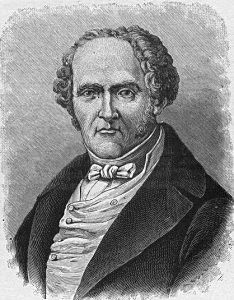Like with all utopias, Brook Farm ran into some big problems. One of the first difficulties was that the rich topsoil on the property was just a few inches deep. The Ripleys needed to bring in tons of expensive fertilizer to plant the crops needed to sustain their community.
Another major problem was debt. In 1843, Brook Farm underwent a great transformation to try to recruit more members. The new Brook Farm was built on the principals of Fourierism, or the writing of French social philosopher Charles Fourier. The main focus was the division of labor and the sharing of profits. Albert Brisbane, a controversial journalist, advocated for Fourierism in New England by downplaying its more risqué ideas. Emerson deemed Fourier’s ideas on open marriages and sex for pleasure as “very French indeed.”

Brook Farm existed on the new foundation of Fourierism for four more years. The end of the community came soon after March 2, 1846 when a new building they were working on burned to the ground. The fire occured while a dance was underway at the Hive. George Ripley’s sister Marianne found beauty in the event, recalling that it was
“glorious beyond description. How grand when this immense heavy column of smoke first rose up to heaven!… It was spangled with fiery sparks, and tinged with glowing colors, ever rolling and wreathing, solemnly and gracefully up—up.”
The community came to an end early the next year in 1847.
Utopian communities like Brook Farm and Fruitlands, which were both based on values of transcendentalism (at least in the beginning), serve as interesting comparisons to Thoreau’s time at Walden Pond. The individual experiment is revered, where the communities are judged by the failure they met at the end. Perhaps Emerson was right in his early dismissal of Brook Farm—that “one man is a counterpoise to a city.” In practice, Transcendentalism worked much better for an individual than as the basis of a community. Or perhaps Thoreau simply knew to quit before disaster struck.

